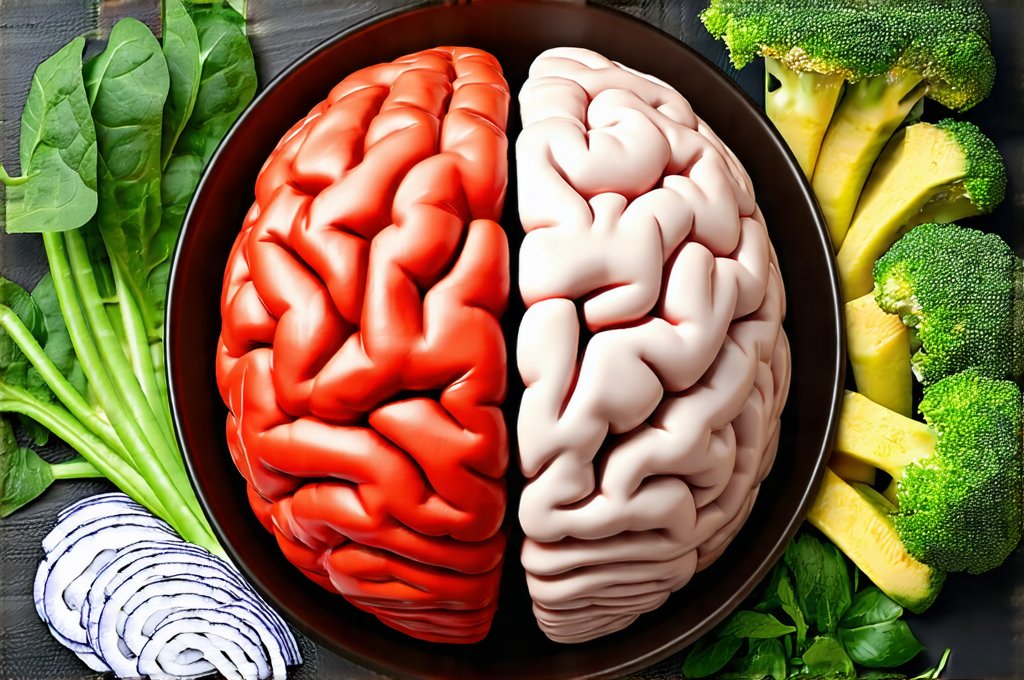Brain fog and persistent fatigue are debilitating experiences that impact countless individuals, often hindering daily functioning and quality of life. These aren’t simply signs of being tired; they can stem from complex interactions between diet, lifestyle, stress levels, and underlying health conditions. While a definitive “cure” isn’t always possible without addressing root causes with healthcare professionals, significant improvements can be achieved through strategic dietary adjustments that nourish the brain and body. Many people unknowingly contribute to their fatigue and mental cloudiness through poor eating habits – consistently relying on quick fixes like sugary snacks or caffeine boosts which ultimately exacerbate the problem in the long run.
The good news is you can proactively support your cognitive function and energy levels with a well-planned meal strategy. This isn’t about restrictive dieting; it’s about prioritizing nutrient density, consistent blood sugar regulation, and providing your body with the building blocks it needs to thrive. A focus on whole foods, balanced macronutrients, and mindful eating can be transformative in alleviating brain fog and restoring vitality. It requires understanding how different food groups impact energy production, neurotransmitter function, and overall brain health, allowing you to make informed choices that support optimal wellbeing.
The Foundation: Stabilizing Blood Sugar & Nutrient Density
Fluctuating blood sugar levels are a major culprit behind both brain fog and fatigue. When we consume sugary foods or refined carbohydrates, we experience rapid spikes in glucose followed by equally swift crashes. These fluctuations disrupt cognitive function, leading to difficulty concentrating, mood swings, and feelings of exhaustion. Conversely, consistent blood sugar management provides the brain with a steady supply of energy, promoting clarity and sustained focus. Prioritizing complex carbohydrates over simple sugars is paramount. Complex carbs – found in whole grains, vegetables, and legumes – are digested more slowly, providing a gradual release of glucose into the bloodstream.
Nutrient density also plays a crucial role. The brain requires a constant supply of vitamins, minerals, and antioxidants to function optimally. Deficiencies in key nutrients like B vitamins, iron, magnesium, and omega-3 fatty acids can contribute significantly to fatigue and cognitive impairment. A diet rich in whole foods – fruits, vegetables, lean proteins, healthy fats, and complex carbohydrates – ensures the brain receives the essential building blocks it needs to operate at its best. This isn’t just about avoiding bad foods; it’s about actively including incredibly beneficial ones.
Building a diet around these principles means shifting away from processed foods, sugary drinks, and excessive caffeine intake. Instead, focus on incorporating meals that combine protein, healthy fats, and complex carbohydrates to create balanced, sustaining energy. Think oatmeal with berries and nuts for breakfast, a salad with grilled chicken or fish for lunch, and baked salmon with roasted vegetables and quinoa for dinner. This foundational approach sets the stage for lasting improvements in both mental clarity and physical energy.
Brain-Boosting Foods & Their Benefits
Certain foods stand out as particularly beneficial for combating brain fog and fatigue due to their specific nutrient profiles. Omega-3 fatty acids, found abundantly in fatty fish like salmon, mackerel, and sardines, are essential for brain health and cognitive function. They support neuronal communication, reduce inflammation, and may improve mood. Incorporating these into your diet a few times per week is highly recommended.
Beyond omega-3s, foods rich in antioxidants – such as blueberries, spinach, and dark chocolate (in moderation!) – help protect brain cells from oxidative stress, which contributes to cognitive decline and fatigue. Antioxidants neutralize free radicals, reducing cellular damage and promoting optimal brain function. Similarly, magnesium-rich foods like avocados, nuts, seeds, and leafy greens are crucial for energy production and nerve transmission. Magnesium deficiency is surprisingly common and can manifest as fatigue, muscle weakness, and difficulty concentrating.
Here’s a quick list of powerhouses to consider:
– Blueberries: Rich in antioxidants and linked to improved memory.
– Salmon: Excellent source of omega-3 fatty acids and protein.
– Avocados: Healthy fats, magnesium, and potassium for sustained energy.
– Spinach: Packed with vitamins, minerals, and antioxidants.
– Nuts & Seeds: Provide healthy fats, protein, and fiber.
Hydration & Electrolyte Balance
Dehydration is a frequent cause of brain fog and fatigue, often overlooked in dietary considerations. Even mild dehydration can impair cognitive function, leading to difficulty concentrating, headaches, and reduced energy levels. Maintaining adequate hydration throughout the day is crucial. Aim for at least eight glasses of water daily, adjusting based on activity level and climate.
However, it’s not just about quantity but also quality. Electrolytes – minerals like sodium, potassium, and magnesium – are lost through sweat and urination, and their depletion can exacerbate fatigue and cognitive impairment. Replenishing electrolytes is particularly important during exercise or in hot weather. You can replenish them through electrolyte-rich foods (like bananas for potassium) or consider a natural electrolyte drink without added sugars.
Here’s how to stay properly hydrated:
1. Carry a reusable water bottle and sip on it throughout the day.
2. Incorporate hydrating fruits and vegetables into your meals, such as watermelon, cucumber, and oranges.
3. Be mindful of caffeine and alcohol intake, as they can have diuretic effects and contribute to dehydration.
Meal Timing & Consistency
Consistent meal timing is often underestimated but incredibly impactful for stabilizing blood sugar and energy levels. Skipping meals or going long periods without eating disrupts glucose metabolism, leading to crashes and contributing to brain fog and fatigue. Aim for regular mealtimes – ideally every 3-4 hours – to provide a steady stream of nutrients to the brain and body.
Planning your meals in advance can help ensure you’re making healthy choices and staying on track with your dietary goals. Preparing snacks like nuts, seeds, or yogurt between meals can prevent energy dips and keep your blood sugar stable. Also, avoid eating large, heavy meals right before bed, as this can interfere with sleep quality and leave you feeling sluggish in the morning. Prioritizing consistent eating patterns supports a more balanced hormonal response and contributes to sustained energy throughout the day.
It’s important to remember that dietary changes are most effective when combined with other healthy lifestyle habits, such as regular exercise, adequate sleep, and stress management techniques. Addressing these factors holistically will maximize your chances of overcoming brain fog and fatigue and regaining a sense of vitality.




